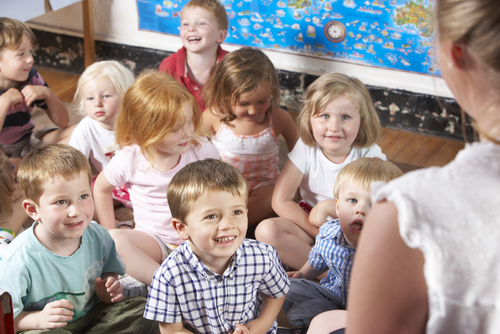Communicating to to anyone especially kids is more of an art than a science. I remember teaching a lesson to a small group of like 30 kids. I was going for it—I had props, I was ready, I was engaging … then a boy in the 3rd grade raised his hand and I called on him. He said, “This is boring.”
Where you start from is as important as where you go.
To communicate to kids, you need the following:
1. A love for God’s word – No matter how fun, amazing, crazy, slimy, or explosiony our message is, if we are not continually pointing kids back to the Bible, we will have failed. We have to be more intentional than ever to create a biblical world view in the hearts of our kids.
Psalm 119:89-93
89 Your word, LORD, is eternal;
it stands firm in the heavens.
90 Your faithfulness continues through all generations;
you established the earth, and it endures.
91 Your laws endure to this day,
for all things serve you.
92 If your law had not been my delight,
I would have perished in my affliction.
93 I will never forget your precepts,
for by them you have preserved my life
2. A love for Jesus – If you love Jesus, it will fundamentally change how and why you do what you do. The core of our teaching has to be the Gospel. When kids encounter the Gospel, it changes them fundamentally.
One of the advantages of serving in kids’ ministry at the same church for 14 years is you are able to see the results of ideas and philosophies you have had. One of the things I regret most is not preaching the gospel as clear or as often as I should have. I don’t change hearts; Jesus does.
Romans 1:16-17
16 For I am not ashamed of the gospel, because it is the power of God that brings salvation to everyone who believes, first for the Jew, then for the Gentile
For in the gospel the righteousness of God is revealed—a righteousness that is by faith from first to last, just as it is written: “The righteous will live by faith.”
Communicating to kids in a large group setting:
- Always maintain eye contact – Kids learn with their eyes. If you don’t have their eyes, you don’t have their hearts and minds and, most importantly, their imaginations.
- Don’t stay in the Safety Zone – We all have a level we are comfortable with. Don’t stay there; have highs and lows. One of the best ways to get the attention of your kids is not to yell at them but to get quiet.
- Don’t just give kids facts – Your information will not be life-changing if it is not conveyed in the context of a story. Jesus did this all the time; he called them parables. Tell kids truth in a story. Tell them stories about you. Kids love personal stories about you, especially if you messed up in some way.
- Talk to kids like people, not babies – Don’t use an Elmo voice.
- Use massive amounts of energy – You can rarely be too animated. If you feel stupid, you are probably right on track.
- Help kids focus – Use lights, segments and music.
- Be relevant – Know what kids like now. Don’t use examples from when you were a kid.
- Use your Bible – Bring it up front or on stage with you. Kids need you to reinforce that the Bible is life. It’s not a book of fairy tales.
- Distill truth; don’t simplify it – We underestimate what kids can understand. Einstein said, “If you can’t distill it, you don’t understand it well enough.” One huge example for me was faith—I used to describe it as “believing in the unseen.” That is a simple definition of faith. But a distilled version is “Knowing God loves you and because he loves you, you can trust him no matter what.” It’s easy to understand, theologically correct and doesn’t lose the power though oversimplification.
- Always elevate Christ – I always try in the application section to elevate Christ, that what He’s done for us empowers us to live for him.
Communicating to kids in a small group:
- Listen – Kids want to talk listen to them.
- Know your lesson, know your lesson – The better you know what you are doing, the more you kids feel respected. The more you can connect with your kids. The more you can listen to the Holy Spirit and make those small adjustments that make all the difference.
- Take every question seriously.
- Be there for the families of your small group kids. What you teach makes an impact, but when you capitalize on those God-moments, your kids will never forget it.
Communicating to kids one-on-one:
- Get down to their eye level.
- Make sure you always great the kids before the parents.
- Give kids your full attention when they are talking.












